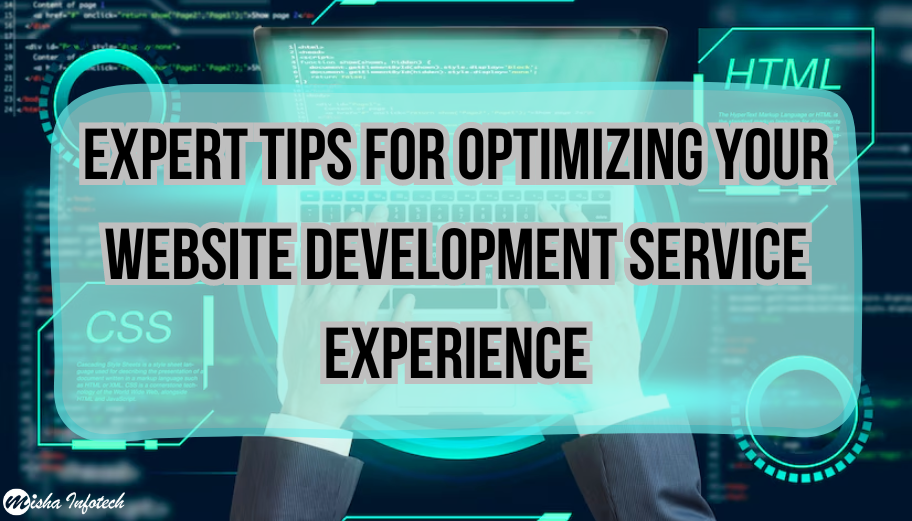In today’s digital age, having a strong online presence is crucial for businesses of all sizes. A well-designed website showcases your brand and is a powerful tool for attracting and retaining customers. However, developing a website that effectively represents your brand and meets your business objectives requires careful planning and execution. Whether you’re a business owner looking to revamp your website or a developer offering website development services, optimizing the development process is essential for success. This article will explore expert tips for optimizing your website development service experience.
1- Define Clear Objectives: Before diving into the development process, it’s essential to define clear objectives for your website. What are your goals? Who is your target audience? What functionality do you require? By having a clear understanding of your objectives, you can ensure that your website aligns with your business goals and serves the needs of your audience effectively.
2- Choose the Right Platform: There are numerous website development platforms available, each with its own set of features and capabilities. Whether you opt for WordPress, Drupal, Joomla, or a custom solution, it’s crucial to choose a platform that best suits your needs. Consider factors such as scalability, flexibility, and ease of use when selecting a platform for your website development project.
3- Focus on User Experience (UX): User experience plays a critical role in the success of a website. A well-designed website should be easy to navigate, visually appealing, and intuitive to use. Pay attention to factors such as site structure, page layout, and mobile responsiveness to ensure a positive user experience for your visitors.
4- Prioritize Performance Optimization: In today’s fast-paced digital world, users expect websites to load quickly and perform seamlessly across devices. Performance optimization is crucial for improving user experience and search engine rankings. Minimize page load times, optimize images and multimedia content, and leverage caching techniques to enhance website performance.
5- Ensure Cross-Browser Compatibility: With the plethora of web browsers available, it’s essential to ensure that your website looks and functions consistently across different browsers and devices. Test your website thoroughly on popular browsers such as Google Chrome, Mozilla Firefox, Safari, and Microsoft Edge to identify and address any compatibility issues.
6- Implement SEO Best Practices: Search engine optimization (SEO) is essential for driving organic traffic to your website. Incorporate SEO best practices such as keyword research, meta tags optimization, and quality content creation to improve your website’s visibility in search engine results pages (SERPs).
7- Integrate Analytics Tools: Analytics tools provide valuable insights into how users interact with your website. Integrate tools such as Google Analytics to track key metrics such as traffic sources, user behavior, and conversion rates. Use this data to identify areas for improvement and make informed decisions to optimize your website further.
8- Focus on Security: Website security is a top priority for businesses and users alike. Protect your website from cyber threats by implementing robust security measures such as SSL encryption, regular software updates, and strong password policies. Additionally, consider implementing a web application firewall (WAF) to defend against malicious attacks.
9- Invest in Professional Support: Building and maintaining a website requires ongoing effort and expertise. Consider investing in professional support, whether it’s hiring a dedicated web developer or partnering with a reputable web development agency. Professional support can help ensure that your website remains up-to-date, secure, and optimized for performance.
10- Continuous Improvement: The digital landscape is constantly evolving, and so should your website. Embrace a mindset of continuous improvement by regularly monitoring your website’s performance, soliciting feedback from users, and staying abreast of industry trends and best practices. Continuously refine and optimize your website to ensure that it remains effective in meeting your business objectives.
In conclusion, optimizing your website development service experience requires careful planning, attention to detail, and a commitment to excellence. By defining clear objectives, choosing the right platform, focusing on user experience, and implementing best practices in areas such as performance optimization, SEO, and security, you can create a website that not only showcases your brand but also drives results for your business. Remember to invest in professional support and embrace a mindset of continuous improvement to keep your website ahead of the curve in today’s competitive digital landscape.














